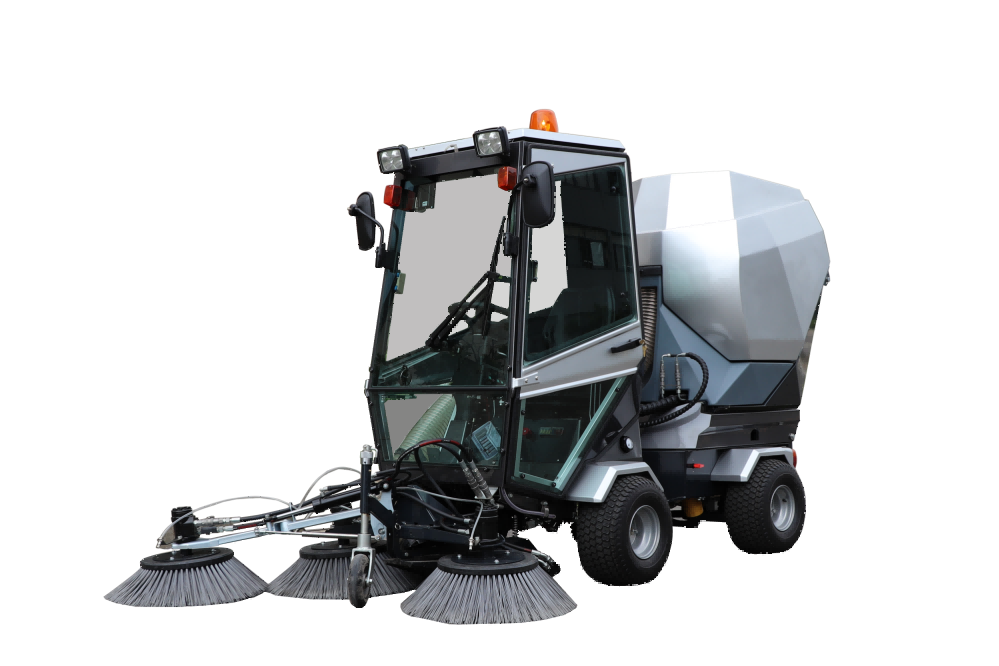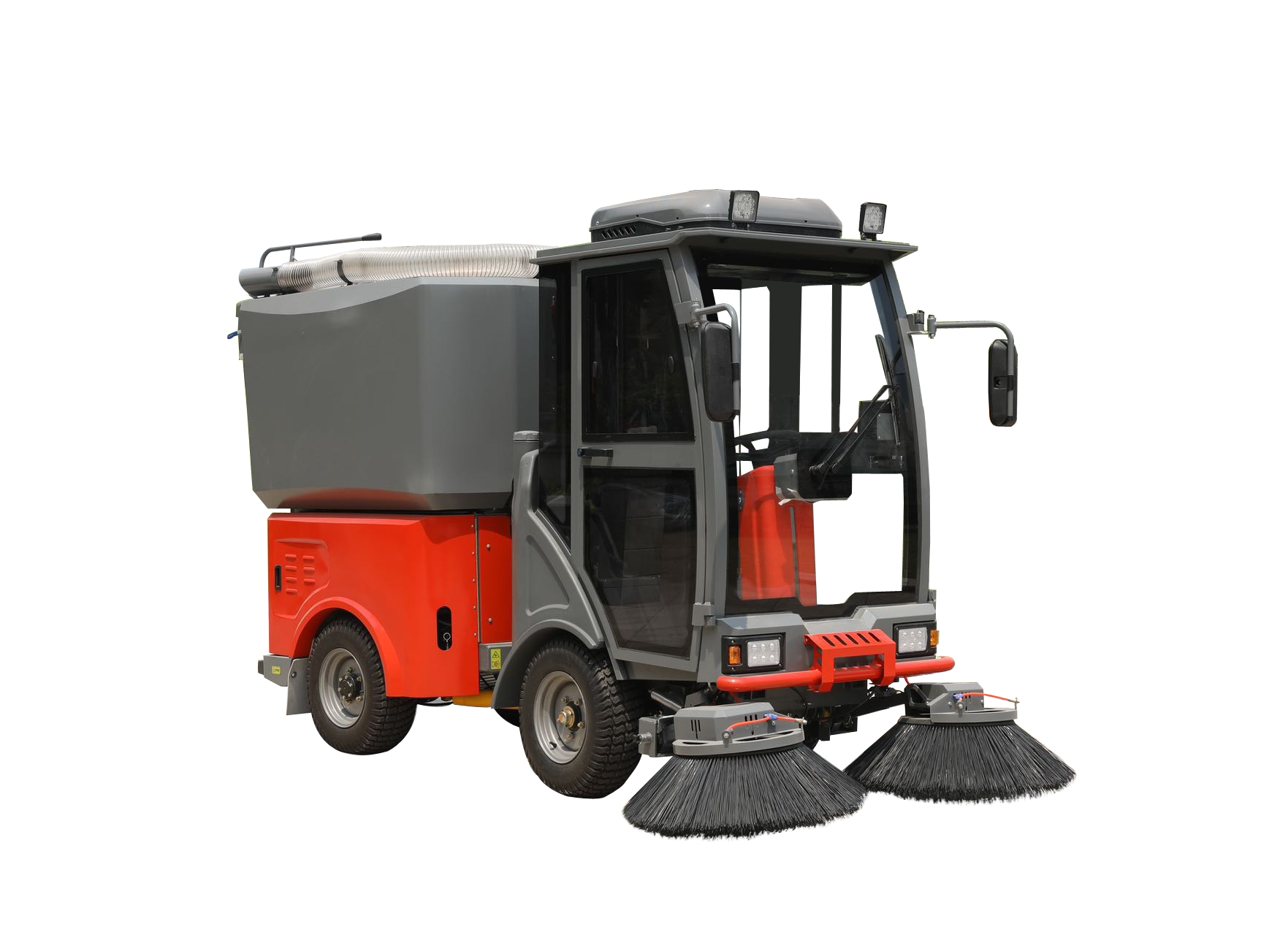הפחתת זרימת זיהום מזיקה אל מסילות מים
חסימה של נתיבי זיהום אל הנהרות והאוקיינוסים
ניקוי רחובות משחק תפקיד מרכזי בהפסקת מסילות זיהום הנכנסות מנקודות עירוניות לנהרות ולאוקיינוסים. מקורות משמעותיים של זיהום כוללים אתרי בנייה, משטחים עירוניים בלתי חדירים ודליפות פסולת, שכולם תורמים לרסיסים ול מזהמים שניתן לאסוף באמצעות רחיצת רחוב. על ידי הסרת הזיהומים לפני שנכנסים למערכות הصرف של מי גשמים, רחיצת רחוב היא אסטרטגיה יעילה בניהול מי הגשם. ניקוי קבוע של פסולת מה cali מונע מהמתכות הכבדות והחומרים המזינים לחדור לגוף המים, ובכך מפחית את ההשפעה של מי הזרימה העירוניים על מערכות האקולוגיה האקווטית.
מניעת פריחות אצות על ידי הסרת רסיסים
ר sweeping רחובות שגרתי הוא חיוני בפינוי מי תהום ערים במטרה למנוע פריחת אצות שעלולה לפגוע קשות באקולוגיה המימית. חומרי תזונה מיותרים, במיוחד חנקן וזרחן שמגיעים מהפסולת העירונית, ידועים בכך שהם מעוררי צמיחה מסוכנת של אצות. באמצעות הסרת הפסולת הזו, פינוי הרחובות עוזר לשמירה על האיזון האקולוגי ב المجاري המים ומונע את התהליך של אוטרופיקציה, תהליך שבו רמות גבוהות מדי של חומרי תזונה גורמות לדליפת חמצן ומתת בעלי חיים מימיים. מחקרים מדגישים כי ערים שממשיכות מדיניות עקבית של סריקת רחובות נוטות לחוות רמות נמוכות יותר של חומרי תזונה ב المجاري המים, ובכך תורמות לסביבה אקוויטית בריאה יותר.
התפקיד של הסריקה בשמירה על מערכות האקולוגיה הימיות
런오프는 퇴적과 서식지 파괴로 인해 해양 생태계에 상당한 위협을 가합니다. 효과적인 거리 청소 관행은 이러한 오염물질을 줄이는 데 핵심적인 역할을 합니다. 통계에 따르면 거리 청소를 우선시하는 지역에서는 해양 오염물질의 감소가 뚜렷하게 나타납니다. 거리 청소는 도시 런오프의 악영향을 완화하여 어류 개체수를 보호하고 생물 다양성을 유지합니다. 도로 위의 쓰레기와 오염물질을 통제함으로써, 거리 청소는 해양 생물을 보호하기 위한 최전선 방어선 역할을 하며, 도시 지역에서 유입되는 런오프가 이러한 중요한 생태계의 건강성과 지속 가능성을 해치지 않도록 보장합니다.
먼지 및 알레르기 유발 물질 최소화를 통한 공기질 개선
도로 쓰레기와 공중 부유 입자 간의 연관성
حطאי רחובות וחלקיקים באוויר קשורים זה לזה באופן הדוק, והבנת הקשר הזה היא חיונית לשיפור איכות האוויר העירוני. הצטברות חתיכות על הכבישים תורמת משמעותית לרמות גבוהות של PM10 ו-PM2.5, במיוחד בסביבות עירוניות עמוסות. ניקוי שגרתי של הרחובות יכול להפחית באופן ניכר את החלקיקים הללו על ידי הסרת מקורות האבק לפני שהם נעשים לאוירים. מחקרים הראו כי קיצוץ במרווחי הניקוי מוריד את רמות הזיהום, ומגן על הבריאות הציבורית. לדוגמה, יישום מערכת ניקוי פרואקטיבית שתשקול את השינויים העונתיים בחומרים שעל הכבישים, כמו הגידול בצמחייה בתקופת הסתיו, הוא חשוב. הגישה הזו מפחיתה באופן יעיל את העליות הת suddenly בעלות החלקיקים, ומהדקת את חשיבות הניקוי השגרתי של הרחובות לשיפור איכות האוויר.

השלכות הבריאות של הפחתת אבק באזורים עירוניים
הפחתת רמות האבק והאלרגנים באזורים עירוניים מביאה עימיה יתרונות בריאותיים רבים. ריכוזים גבוהים של אבק עלולים לגרום לבעיות נשימה ולהחמיר אלרגיות, מה שעלול להוות סיכון בריאותי משמעותי לתושבי העיר. מחקרים רפואיים ציבוריים הדגישו כי תactices טובות של ניקוי רחובות קשורים למיעוט מקרי מחלות, ושיפור תוצאות הבריאות הציבורית. רחובות נקיים תורמים לרווחת הקהילה, מקטינים את עלויות הבריאות ופוחתים מן העומס על מוסדות הרפואה. בנוסף, על ידי הפחתת האבק והאלרגנים, רשויות מקומיות יכולות לקדם סביבות עירוניות בריאות יותר, לתמוך ברווחת התושבים ולשפר את איכות החיים הכללית בערים. הסרת אבק ופסולת היא חיונית ביצירת סביבת חיים בריאה, בטוחה ונעימה יותר עבור הקהילות.
מטאטאים חשמליים לרחובות: חיסכון בהפקדות ובחומרי זיהום קולי
יתרונות טכנולוגיית המטאטא החשמלית
שואבי הרחוב החשמליים מובילים את הדרך לעירוניות ירוקה יותר על ידי הפחתת פליטות משמעותית בהשוואה למכוניות דיזל. באמצעות הנעה חשמלית, שואבים אלו מפחיתים את הפליטות מהعادן, ותורמים לאויר נקי יותר בשכונות עם אוכלוסייה צפופה. נתונים מאגודות ערים אשר אימצו את השואבים החשמליים מציגים ירידה substancial בגזי חממה. לדוגמה, השימוש בשואבים חשמליים הביא לירידה של עד 97% בפליטת פחמן דו-חמצני לכל כלי רכב שנתי. ההשקעות של הרשויות המקומית בטכנולוגיה זו בעלות עלייה, שכן יש רצון באורך המeso להשלכות הסביבתיות החיוביות וההתאמה לסטנדרטים קפדניים של פליטות. המעבר הזה הוא צעד מהותי לעבר אורח חיים עירוני בר קיימא, ומדגים את המגמה של העדפת פתרונות ידידותיים לסביבה בโครง התחתי ציבורי.
הפחתת רעש - יתרונות לקהילות
רוכבי רחוב מסורתיים ידועים בזיהום השמיעה שלהם, מה שמפריע לקהילות, במיוחד במהלך שעות הבוקר המוקדמות. רוכבי הרחוב החשמליים פותרים את הבעיה הזאת על ידי פעולה שקטה בהרבה מעלות, וכך משפרים את איכות החיים של תושבי העיר. ברמות השמיעה הנמוכות יותר שלהם, כלי הרכב האלה תורמים לסביבה שקטה בהרבה מעלות, במיוחד בשכונות מגורות. תגובות הקהילה היו חד-משמעיות וחיוביות, עם מחקרים שמציינים את ה שביעות הרצון הגבוהה יותר בקרב התושבים עקב הפעולה השקטה של הרוכבים החשמליים. זה הביא להגברת הקבלה והביקוש אליהם, ומדגיש את המ rôle החשוב שהפיכת רוכבי הרחוב לשקטים ממומשים ביצירת מרחב עירוני נעים וחייתי יותר.
בקרת טפילים ויתרונות לבריאות הציבור בזכות רחובות נקיים
איך רחובות נקיים מדבירים עכברים וחיפושיות
calaqim nakiyot maspiqot mekomo al shearat harakavot ve-ha'ashnot, otan le-makhit ha-kadmoni neged ha-pekhot ha-iriyot. rehovot me'umaim matin le-fiq l'merkaz li-pikhot asher kmo ha-tsir'ot ve-ha-gedishonim, asher misgadlot be-tefusot im rov sherit akhila ve-menucha. la-dugma, iriyot she-mashmirot taqanot shel tifur rehovot manuyot khayigu be-yerida mamlakhetit be-mispar ha-pekhot. yehidat "yeridat ha-tsir'ot" be-nu york ikva et tifur rehovot meshulav im shifrut badlat ha-pasolot ve-lehit hayta yerida muda'et be-mispar ha-tsir'ot, kefi she-ne'emar be-dvarim rasmyim shel ha-ir. hamashanot ha-ele me'orerot al hatzalha be-shiluv beyn klita le-pekhot u-sheemur rehovot ba-tikanut. be-hitpalegot beyn tifur rehovot sefruti, nehsenot pasolot mekoriyot ve-mivtsaim le-hagahat ha-tsibur, merap'im yekholim le-ma'at betsheket et he'akhsaniyot ve-saknat briyot she-nimshot me-pekhot. ze maqim et rehovot hanakiyot ke-rakevet mekora be-migreshim le-briyot ve-lihyut ba-ir.
הפחתת התפשטות מחלות באמצעות סילוק שגרתי
סילוק רחובות בשגרה הוא הכרחית כדי למזער את התפשטות מחלות נישאות על ידי וקטורים, ותורמת באופן משמעותי לבריאות הציבור. רחובות נקיים מצמצמים פסולת וחומר אורגני שבו וקטורים של מחלות שגועים, ובכך מקטינים את הסיכונים הבריאותיים האפשריים. סטטיסטיקות מערים עם תוכניות תחזוקת רחוב מתמשכות מציגות ירידה מרשימה במחלות הנישאות על ידי מזיקים כמו יתושים ועכברים. לדוגמה, קהילות המשלבות סריקת רחוב מסודרת כחלק מהזדמנויות לבריאות הציבור צפויות בירידה בתחלואה ממחלות כמו חום денגי ולפטוספירוזיס. לרוב תוכניות אלו כוללות שיתופי פעולה אסטרטגיים עם מחלקות בריאות הציבור כדי לוודא שסילוק הרחובים משלים את אמצעי الوقاיה ממחלות נרחבים יותר. לפיכך, סילוק רחוב שגרתי משרת לא רק מאמץ ניקיון אלא גם אמצעי מניעה חשוב להגנת בריאות הקהילה.
תמיכה במבנה תשתיות עירוניות בר קיימא
שילוב רחיצת רחובות במיזמי עיר ירוקה
רחיצת רחובות אינה רק פעילות תחזוקתית אלא מתקיימת בהדרגה גם כחלק ממיזמי עיר ירוקה, כإستراتيجיה לקידום תשתיות עירוניות בר קיימא. ערים כמו סן פרנסיסקו וкопנהגן שילבו בצורה יעילה את רחיצת הרחובות בתוכניות הקיימות שלהן, והסתגלו ליעדים אקולוגיים רחבים יותר. למשל, הערים הללו משתמשות במכונות רחיצה חשמליות כדי לצמצם את פליטת הפחמן ולצמצם את התלות בדלקים מאובakens. השתתפות הקהילה היא אף היא קריטית, שכן תושבים משתתפים בקמפיינים המוניים, מבינים את ההשפעות הסביבתיות ותומכים במאמצי ניקיון הרחוב. על ידי שילוב רחיצת רחובות במיזמי ירוק, נוכל להתקדם לעבר סביבות עירוניות נקיות וברות קיום, לשפר את איכות החיים ולטפל באתגרי האקלים.
저축 ארוך טווח של תחזוקה מניעה
השקעה בשמירה מונעת של רחובות מספקת חיסכון משמעותי בעלויות לאורך זמן בהשוואה לאסטרטגיות תגובתיות. ניקוי שגרתי של הרחובות אינו רק שומר על ניקיון הדרכים אלא גם מונע הצטברות של זבל שעלולה להוביל לדיורים יקרים ולקיטון המבנה הרציף. נתונים מאירוחים שונים מצביעים על כך ששמרנות עקבית יכולה לצמצם את עלויות תיקון המבנה עד ל-30%. בנוסף, השמירה על רחובות עירוניים באמצעות ניקוי שגרתי מאריכה את תקופת השימוש שלהם, ודוחה פרויקטים יקרים של שיפוץ פני השטח. לאורך זמן, אסטרטגיות שמרנות אלו הן חכמות כלכלית וחיוניות לשמירה על המבנה העירוני. על ידי השקעה באמצעים מונעים כיום, רשויות מקומיות יכולות לחסוך מיליונים בעלות עתידיות לתיקון תשתיות, מה שהופך את ההשקעה הזו לנכונה כלכלית.
שאלות נפוצות
מדוע חשוב ניקוי רחובות לניהול מי תהום?
ניקוי רחובות הוא קריטי לניהול מי השטפון מכיוון שהוא מסיר שברי חומרים ו מזהמים מאזורים עירוניים לפני שנכנסים למערכות הניקוז של מי השטפון, מפחית זיהום במקווי מים
איך ניקוי הרחוב תורם למערכת אקולוגית صحיה של מימי-מעמקים?
על ידי מניעת חדירת יתר של חומרי תזונה אל מקווי המים, ניקוי הרחובות מפחית את הסיכון לפריחת אצות וליוטרופיקציה, וכך תורם לשמירה על האיזון האקולוגי ועל בריאות החיים במימי-המעמקים
האם ניקוי רחוב יכול לשפר את איכות האוויר בערים?
כן, ניקוי רחובות קבוע מסיר שברי חומרים שעלולים להפוך לאבקה באוויר, מפחית את רמות ה PM10 ו PM2.5 ותורם לשיפור איכות האוויר
מהם היתרונות הסביבתיים של טיילרים חשמליים?
ניקויי רחוב חשמליים מקצצים משמעותית בהוצאות ומפחיתים זיהום רעש, הם מספקים פתרונות ירוקים ושקטים בהשוואה לניקויי דיזל מסורתיים
איך רחובות נקיים עוזרים בשליטת מזיקים?
שיטוף רחובות בתדירות גבוהה מסיר פארס ופסולת אורגנית, שהם תנאים אידיאליים להתרבות של מזיקים כמו עכברים ויתושים, ובכך עוזר בהפחתת אוכלוסיית המזיקים.
אילו הם היתרונות הפיננסיים לטווח הרחוק של שיטוף רחובות עקבי?
שיטוף רחובות עקבי מונע הצטברות של זבל, מקטין את עלויות תיקון התשתית עד ל-30%, ומאריך את חיי השימוש של הכבישים העירוניים, ובכך חוסך ערים כסף לאורך זמן.
 EN
EN
 AR
AR
 FR
FR
 HI
HI
 JA
JA
 KO
KO
 PT
PT
 RU
RU
 ES
ES
 IW
IW
 VI
VI
 TH
TH
 MS
MS

